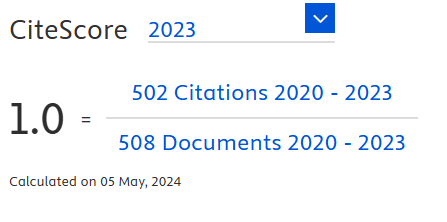A WEB-BASED CROSS-SECTIONAL STUDY AMONG INDIANS REVEALS A WILLINGNESS SHIFT REGARDING COVID-19 VACCINE UPTAKE AFTER THE SECOND WAVE
DOI:
https://doi.org/10.18006/2021.9(5).647.656Keywords:
Vaccine hesitancy, COVID-19, Second wave, Willingness shift, Web-based online surveyAbstract
This study aimed to determine the shift in willingness regarding the COVID-19 vaccine after the second wave. The study attempts to understand the willingness towards COVID-19 vaccination by assessing the public's knowledge, concerns, and attitude regarding the vaccine. Between May 16 to May 28, 2021, the individuals of the general population were invited to fill the online questionnaire. Total 711 participants had given their informed consent and completed the questionnaire on their background and vaccination behavior-related variables such as knowledge, practices, and their concerns regarding the vaccine. Before the launching of the vaccine, people were less likely to get vaccinated (63.6%); however, once the second wave hit India, attitudes towards vaccines shifted dramatically, and the figure increased to 84.4%. A significant proportion of the population is now willing to take the vaccine. There are several socio-demographic differences regarding knowledge and concerns related to vaccines, especially in age and gender groups. The success of a COVID-19 vaccination program is determined not just by the vaccine's efficacy, but also by its uptake. To ensure optimum vaccination uptake, there is an immediate need for the most effective policy and communication.
References
Dubé E, Laberge C, Guay M, Bramadat P, Roy R, Bettinger J (2013) Vaccine hesitancy: An overview. Human Vaccines and Immunotherapeutics 9(8): 1763–1773. https://doi.org/10.4161/ hv.24657
Fisk RJ (2021) Barriers to vaccination for coronavirus disease 2019 (COVID-19)control: experience from the United States. Global Health Journal 5(1): 51–55. https://doi.org/10.1016/ j.glohj.2021.02.005
Graichen H (2021) What is the difference between the first and the second/third wave of Covid-19? – German perspective. Journal of Orthopaedics 24: A1–A3. https://doi.org/10.1016/j.jor.2021.01.011.
Harapan H, Wagner AL, Yufika A, Winardi W, Anwar S, Gan AK, Setiawan AM, Rajamoorthy Y, Sofyan H, Mudatsir M (2020) Acceptance of a COVID-19 Vaccine in Southeast Asia: A Cross-Sectional Study in Indonesia. Frontiers in Public Health 8: 1–8. https://doi.org/10.3389/fpubh.2020.00381
India could see the third wave in 6-8 weeks if Covid-appropriate behavior is not followed: AIIMS chief Randeep Guleria (2021) Available at https://www.indiatoday.in/coronavirus-outbreak/story/ covid-19-third-wave-india-aiims-randeep-guleria-1816963-2021-06-19 accessed on 24.06.2021.
Janssen C, Maillard A, Bodelet C, Claudel A, Gaillat J, Delory T (2021) Hesitancy towards COVID-19 Vaccination among Healthcare Workers : A Multi-Centric Survey in France. Vaccines 9(6): 547.
Kumari A, Ranjan P, Chopra S, Kaur D, Upadhyay AD, Kaur T, Bhattacharyya A, Arora M, Gupta H, Thrinath A, Prakash B, Vikram NK (2021a) Development and validation of a questionnaire to assess knowledge, attitude, practices, and concerns regarding COVID-19 vaccination among the general population. Diabetes & Metabolic Syndrome: Clinical Research & Reviews 15(3): 919–925. https://doi.org/10.1016/j.dsx.2021.04.004
Kumari A, Ranjan P, Chopra S, Kaur D, Kaur T, Upadhyay AD, Isaac JA, Kasiraj R, Prakash B, Kumar P, Dwivedi SN, VikramNK (2021b) Knowledge, barriers and facilitators regarding COVID-19 vaccine and vaccination programme among the general population: A cross-sectional survey from one thousand two hundred and forty-nine participants. Diabetes and Metabolic Syndrome: Clinical Research and Reviews 15(3): 987–992. https://doi.org/10.1016/ j.dsx.2021.04.015
MacDonald NE, Eskola J, Liang X, Chaudhuri M, Dube E, Gellin B, Goldstein S, et al. (2015)Vaccine hesitancy: Definition, scope and determinants. Vaccine 33(34): 4161–4164. https://doi.org/ 10.1016/j.vaccine.2015.04.036
Ministry of home affairs, India (2021) Available at https://www.mygov.in/covid-19 accessed on 02.06.2021.
Office of the Registrar General & Census Commissioner, India (2021) Available at https://censusindia.gov.in/ accessed on 15.05.2021.
Reiter PL, Pennell ML, Katz ML (2020) Acceptability of a COVID-19 vaccine among adultsin the United States: How many people would get vaccinated?. Vaccine 38(42): 6500-6507. https://doi.org/10.1016/j.vaccine.2020.08.043.
Saied SM, Saied EM, Kabbash IA, Abdo SAEF (2021) Vaccine hesitancy: Beliefs and barriers associated with COVID-19 vaccination among Egyptian medical students. Journal of Medical Virology 93(7): 4280–4291. https://doi.org/10.1002/jmv.26910.
Sallam M (2021) Covid-19 vaccine hesitancy worldwide: A concise systematic review of vaccine acceptance rates. Vaccines 9(2):1–15. https://doi.org/10.3390/vaccines9020160.
Schwarzinger M, Watson V, Arwidson P, Alla F, Luchini S (2021) COVID-19 vaccine hesitancy in a representative working-age population in France: a survey experiment based onvaccine characteristics.The Lancet Public Health 6(4): e210–e221. https://doi.org/10.1016/S2468-2667(21)00012-8.
Seale H, Heywood AE, Leask J, Sheel M, Durrheim DN, Bolsewicz K, Kaur R (2021) Examining Australian public perceptions and behaviors towards a future COVID-19 vaccine. BMC Infectious Diseases 21(1): 1–9. https://doi.org/10.1186/ s12879-021-05833-1.
Seong H, Hyun HJ, Yun JG, Noh JY, Cheong, HJ, Kim WJ, Song JY (2021) Comparison of the second and third waves of the COVID-19 pandemic in South Korea: Importance of early public health intervention. International Journal of Infectious Diseases 104: 742–745. https://doi.org/10.1016/j.ijid.2021.02.004.
Sherman SM, Smith LE, Sim J, Amlôt R, Cutts M, Dasch H, Rubin GJ, Sevdalis N (2021) COVID-19 vaccination intention in the UK: results from the COVID-19 vaccination acceptability study (CoVAccS), a nationally representative cross-sectional survey. Human Vaccines and Immunotherapeutics 17 (6): 1612–1621. https://doi.org/10.1080/21645515.2020.1846397.
Sulprizio M, Kleinert J, Belz J (2021) Mental health in Germany. Mental Health in Elite Sport. Routledge Taylor & Francis group.
Vaccine Hesitancy: what it means and what we need to know in order to tackle it (2015) Available at https://www.who.int/ immunization/research/forums_and_initiatives/1_RButler_VH_Threat_Child_Health_gvirf16.pdf.
Wang J, Jing R, Lai X, Zhang H, Lyu Y, Knoll M D, Fang H (2020) Acceptance of covid-19 vaccination during the covid-19 pandemic in china. Vaccines 8(3): 482 https://doi.org/ 10.3390/vaccines8030482.
Wilson SL, Wiysonge (2020) Social media and vaccine hesitancy.
BMJ Global Health5(10): 1–7. https://doi.org/10.1136/bmjgh-2020-004206.
World health organization, archived: WHO timeline- COVID-19 (2021) https://www.who.int/news/item/27-04-2020-who-timeline---covid-19 accessed on 17.06.2021.
World health organization, Coronavirus disease: Vaccine(2021) Available at https://www.who.int/news-room/q-a-detail/coronavirus-disease-(covid-19) vaccines?adgroupsurvey={adgroupsurvey}& gclid=Cj0KCQjw5auGBhDEARIsAFyNm9EW962QJ6FIgbOzn5X1g9J-3_NEE_1cXucB0EAg1GI2V_O65lQPJAoaAqKXEALw_wcB accessed on 17.06.2021
Zhang K, Fang Y, Cao H, Chen H, Hu T, Chen Y, Zhou X, Wang Z (2020) Parental Acceptability of COVID-19 Vaccination for Children Under the Age of 18 Years: Cross-Sectional Online Survey. JMIR Pediatr Parent3(2): e24827. doi: 10.2196/24827.
Downloads
Published
How to Cite
Issue
Section
License

This work is licensed under a Creative Commons Attribution-NonCommercial 4.0 International License.












